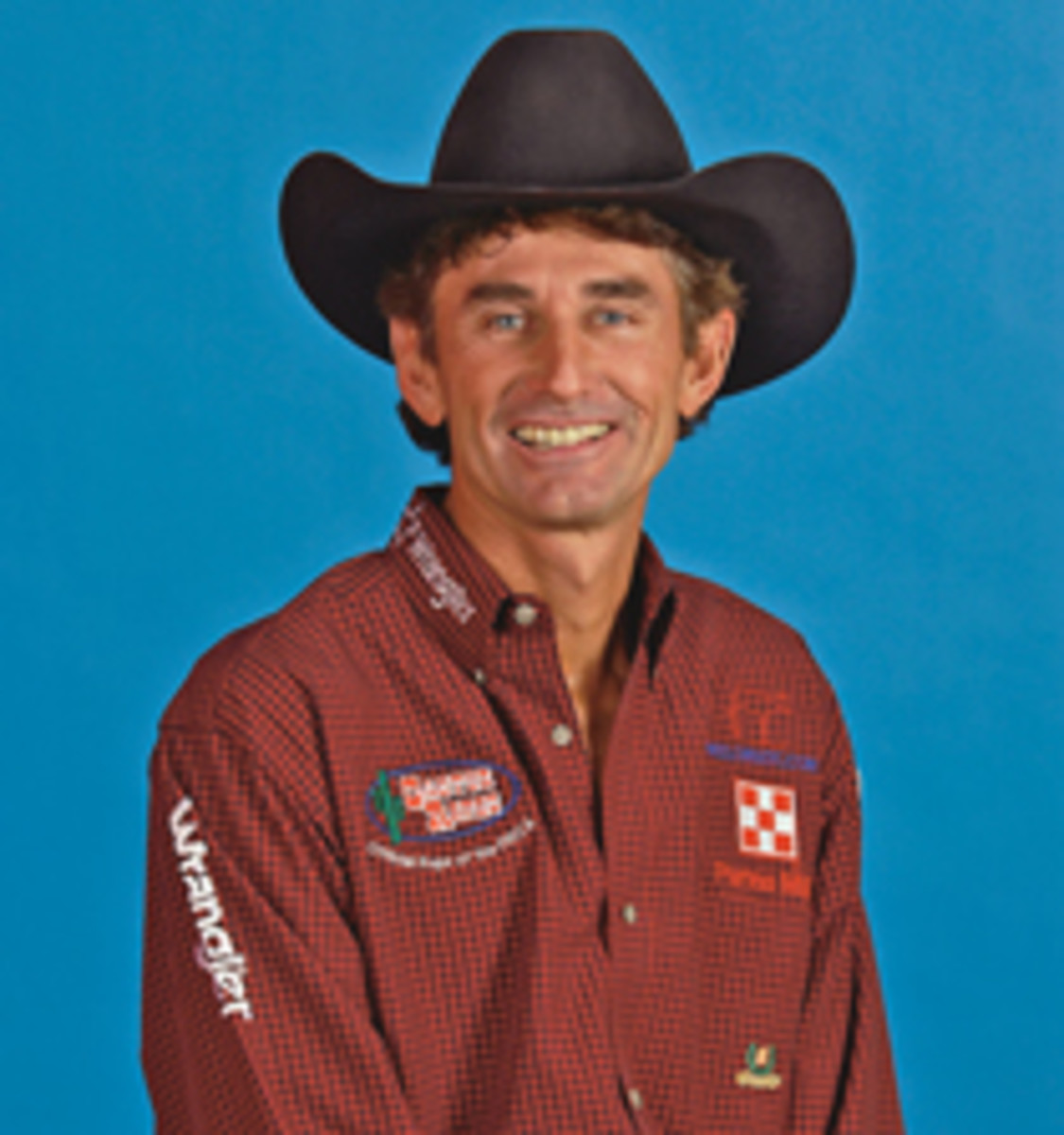
Tee Woolman paid me a pretty big compliment a couple years ago when he said, “You know, you’re one of the only guys I’ve ever seen who’s never been in a slump.”
I thought that was pretty cool. I also thought that, whether you’re talking about Jake (Barnes), Clay (O’Brien Cooper), Tee, Speed (Williams), Rich (Skelton) or myself-guys who’ve been around a long time and have had longevity in this sport-people don’t realize how many times we’ve had to fix our problems. Things come up, we go to the practice pen and fix them, then go to the roping or rodeo.
You need to learn not to panic when things go wrong. You need to realize this is a sport, and you aren’t going to be on top of your game all the time. Day in and day out, you can’t rope to the very best of your ability every single run.
The younger guys who rope really good struggle that first time they run into problems. They sometimes panic, because so much of their success is natural and they haven’t run through and analyzed everything. Part of what’s helped the veterans is having taught so many schools. We’ve had to analyze every aspect of the game, from roping to horsemanship skills.
My son Joel is a perfect example. He’s never been out on the road, run into trouble and had to fix his problems. Some young people don’t know how to fix their problems because they haven’t had many problems yet.
I’m doing a lot of the thinking and fixing for Joel, and he just ropes. He’s seen all the best guys come through here and rope, and I actually think it’s kind of neat that he can rope without having to overthink everything.
The reality is that sometimes you have to fix a problem on the drive from Salinas to Cheyenne. You’ve got a 500-mile drive ahead of you and no chance to throw any practice loops, so you have to make the mental corrections in your mind. You have to be able to visualize, analyze and put it into play when you get to the next one without going through the physical motions.
The ability to do that only comes from the experience of having taken those problems to the practice pen in the past. There are just times when experience is the only thing that’s going to get you through a rough spot, which helps explain why so many guys in their 40s are so dominant these days.
If you look in the standings, you see more veterans in there than you do young guys trying to break into the top 15.
Even though they’re only in their 20s now, Travis and Clay Tryan got started at the amateur rodeos when they were very young. They have a lot of experience for their age, which explains why they act like seasoned pros and not rookies.
It’s no coincidence that some of the best young ropers are from the families they are. Jimmie Cooper has raised Jim and Jake, and Dennis Tryan raised Travis and Clay. Any time those kids start to fall apart, their dads already have it analyzed and fixed. That’s a big advantage over young people who don’t have a mentor looking over their shoulder and trying to help them.
Chad Masters and I were having a conversation recently. He said he’s never had a bad winter before this year. In fact, he’s typically had better winters than summers in the past. With only $5,000 won at winter’s end this year, he was worried about the rest of the season. I used the analogy of my rodeo year being like a basketball game, where the winter is the first quarter and the fall is the fourth quarter. The National Finals finishes off the fourth quarter.
A lot of teams don’t play all four quarters really well without struggling at some point in the game. The good players don’t panic if they fall apart in, say, the second quarter. They don’t just give up and lay down because they had one bad quarter. I explained to Chad that he’d only been to 15 rodeos when we talked, so all he’d done is play the first quarter. He could come back with a lot of energy and in his mind fix whatever he struggled with earlier in the year. He can’t only catch up, but he can pass the guys who maybe started out good but didn’t maintain.
A lot of winning is in the mental part of your roping. I basically break my roping down into roping mechanics, horsemanship and the mental game. This discussion falls right in the middle of the mental game. Sometimes guys who’ve had a bad winter will regroup and wait for next year. Personally, I can’t relate to that. It doesn’t bother me one bit if I don’t have a good winter, because I realize I have three quarters to go. Everybody has a bad quarter every once in awhile.
A key ingredient to success, in my opinion, is being humble and having a teachable spirit. That’s what helps you get to the next level of being a pro. You have to be willing to admit you’re struggling and seek solutions.
Nobody ropes good all the time. Another one of the main ingredients to being a winner is not to be surprised or panic when you have a bad day. Trust your fundamentals. Make them your best friend. Position, swing, timing and delivery really are important to me, and not just something I teach at roping schools-just like passing, dribbling and shooting drills are important to Michael Jordan. Studying your fundamentals inside and out is what will keep you out of a slump.










